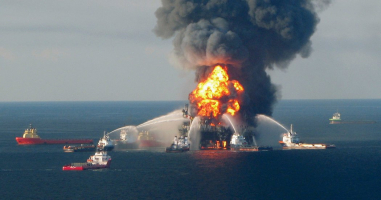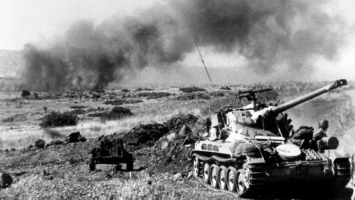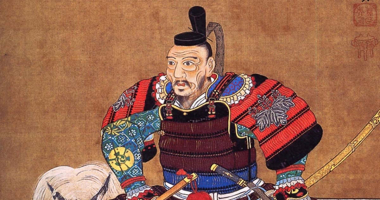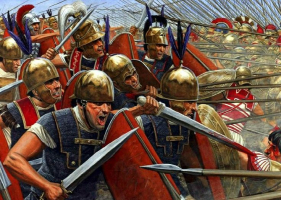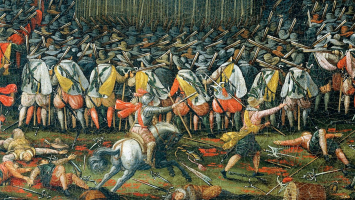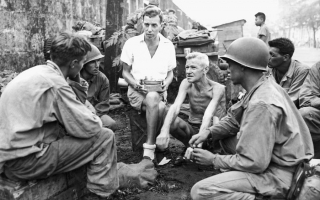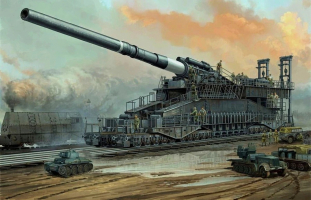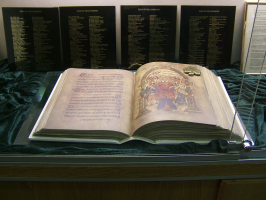Top 10 Biggest Mistakes in History
The majority of the time, history is concerned with successes and wise choices; there's a reason why it's said that "History is written by the victor." ... read more...However, many times mistakes are just as important to a story as good decisions are, and occasionally mistakes constitute a compelling story in and of themselves. Even though no one especially enjoys having to get over a mistake, they can teach us valuable lessons and, on rare occasions, even influence the course of history. Here are some Biggest Mistakes in History.
-
The choice to drop the atomic bomb on two different Japanese cities, Hiroshima and Nagasaki, continues to be one of the most contentious military decisions in history, and there are plenty to pick from. Many people believe the development of nuclear bombing capabilities and everything they stand for. Of course, the long-term effects, such as a rise in the incidence of some cancers in survivors and their offspring, do put pressure on governments to completely phase out nuclear weapons.
One of the claims made about the situation is that Japan would have fallen if only the US had been persistent enough to maintain a blockade of the archipelago, but this ignores the fact that the Pacific Theater, as it was known, also included a sizable portion of territory dispersed throughout the Pacific and included China and parts of Eurasia. However, even though the bomb undoubtedly ended the war, it's possible that it might have remained in reserve for a little while longer if it weren't for a poor translation.
On July 26, 1945, Allied troops delivered the Potsdam Declaration, sometimes referred to as the Proclamation Defining Terms for Japanese Surrender. Along with the information, the US specifically gave Japan an ultimatum, warning that failure to submit would result in "prompt and utter annihilation." The US had tested the atomic bomb successfully ten days prior. After a heated debate within the Japanese administration over such a blatant and confrontational declaration, Prime Minister Kantaro Suzuki declared in a news conference that Japan's approach to the Potsdam Declaration would be one of "mokusatsu." And that's when the communication breakdown occurred. "Mokusatsu" can mean two very different things.The most literal interpretation is an acknowledgment with the hint that more thought is required. The translation given to President Harry S. Truman, however, stated that the phrase might also mean "to contemptuously ignore." The way people responded to the ultimatum had a significant role in the decision to bomb Hiroshima, and the lack of reaction following the first bombing prompted the second. Truman might have waited if someone had clarified the alternative definition of the phrase; while there is no way to know for sure that the bombs would not have been used later, it may have resulted in Japan's capitulation and a lengthier wait before the atomic bomb was made public.
Even if they are not always what nations or individuals want to remember, mistakes have just as much to do with international history as victories do. Mistakes have the capacity to alter the world and our knowledge of it, for better or worse, whether they result in the collapse of an empire, the death of a person, the loss of an opportunity, or the growth of a business that would have otherwise remained a small piece of technology.- Year: 6 and 9 August 1945
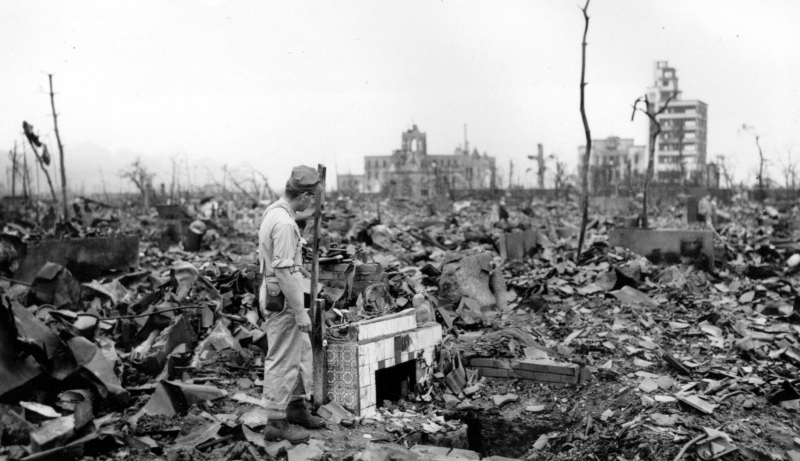
https://www.washingtonexaminer.com 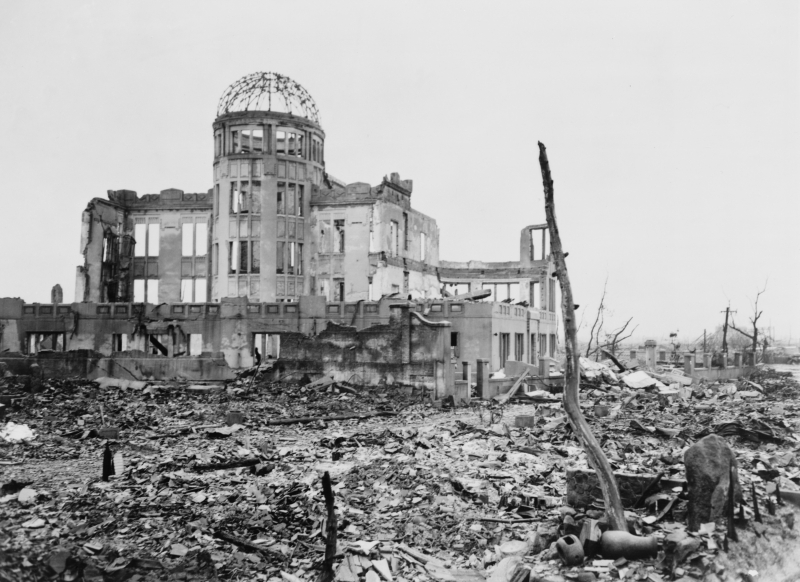
http://www.americamagazine.org -
The RMS Titanic accident, a major maritime catastrophe, was undoubtedly caused by a variety of mistakes. It almost seems as though everything that could possibly go wrong did go wrong in hindsight, and nowhere is this more evident than the catastrophe that left the Titanic's crew without binoculars. Just before the scheduled departure from Southampton, the original Second Officer of the Titanic, David Blair, was abruptly changed by Henry Wilde, a veteran of the Titanic's sister ship, the RMS Olympic. In his rush, he neglected to give the binoculars' key to the locker in the crow's nest.
Naturally, without binoculars, it is much more difficult for the crew to see possible threats at a distance, such as icebergs, which undoubtedly contributed to the Titanic's eventual sinking. One of the crew members who was interviewed during the investigations into the accident's causes brought up the absence of binoculars and their potential contribution to the incident. To be honest, the voyage had so many things going against it that a disaster was all but inevitable.
The crew member in question, Frederick Fleet, said he might have seen the iceberg "a bit sooner" if he had had binoculars. He said, "Well, enough to get out of the way," in response to the question of how much sooner. While several circumstances contributed, the Titanic might not have sunk if the lookouts had been able to notice the iceberg with more time to spare. Who knows what the passengers who perished would have done if this had happened.
- Year: 9th April 1912
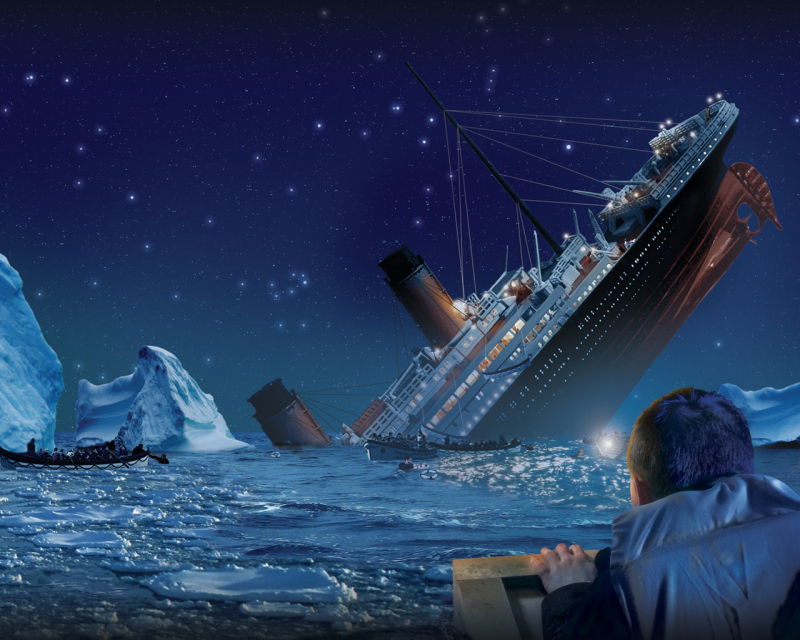
http://coolerinsights.com 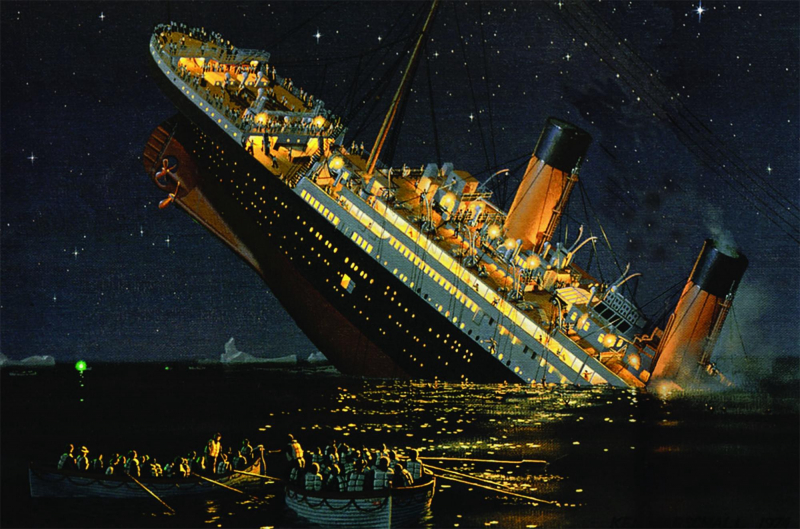
https://medium.com/ -
Personal biases or opinions as well as a lack of perspective on the wider picture have contributed to some of history's biggest errors. Millions of people perished during the Great Chinese Famine, which occurred between the years of 1959 and 1961 (estimates range from 15 million to 55 million), and it might not have occurred if it weren't for Mao Zedong's steadfast hatred for different "pest" species, including sparrows.
The Four Pests Campaign, which aimed to rid China of rats, flies, mosquitos, and sparrows, was one of the initial programs of the Chairman's Great Leap Forward strategy. Rats, flies, and mosquitoes are well-known pests and are all known disease vectors, so it's easy to understand why a nation would wish to get rid of them. Sparrows are an agricultural nuisance, even though they aren't particularly good at spreading disease.
They mostly eat grains and fruit, and in a society that depends significantly on grains as staples (especially rice), sparrow predation of crops results in severe losses. Additionally, the Communist government enacted collectivist policies and other agricultural "reforms" that disregarded the fundamental principles of agriculture (such as crowding plants of the same kind together under the presumption that they wouldn't compete with one another and deep plowing, which is unsuitable for the rocky, sandy soils that make up much of China).
Since sparrows consume a lot of insects, trying to eradicate them led to a reduction in efficient pest control and an increase in insects that more quickly destroyed grain production. This led to a loss of more than 30% of productivity, which was further exacerbated by poor agronomy policy and unfavorable weather. This led to widespread famine and death as a result. Millions of lives might have been saved if Mao Zedong had listened to the warnings of experts in his own nation.- Year: 1950
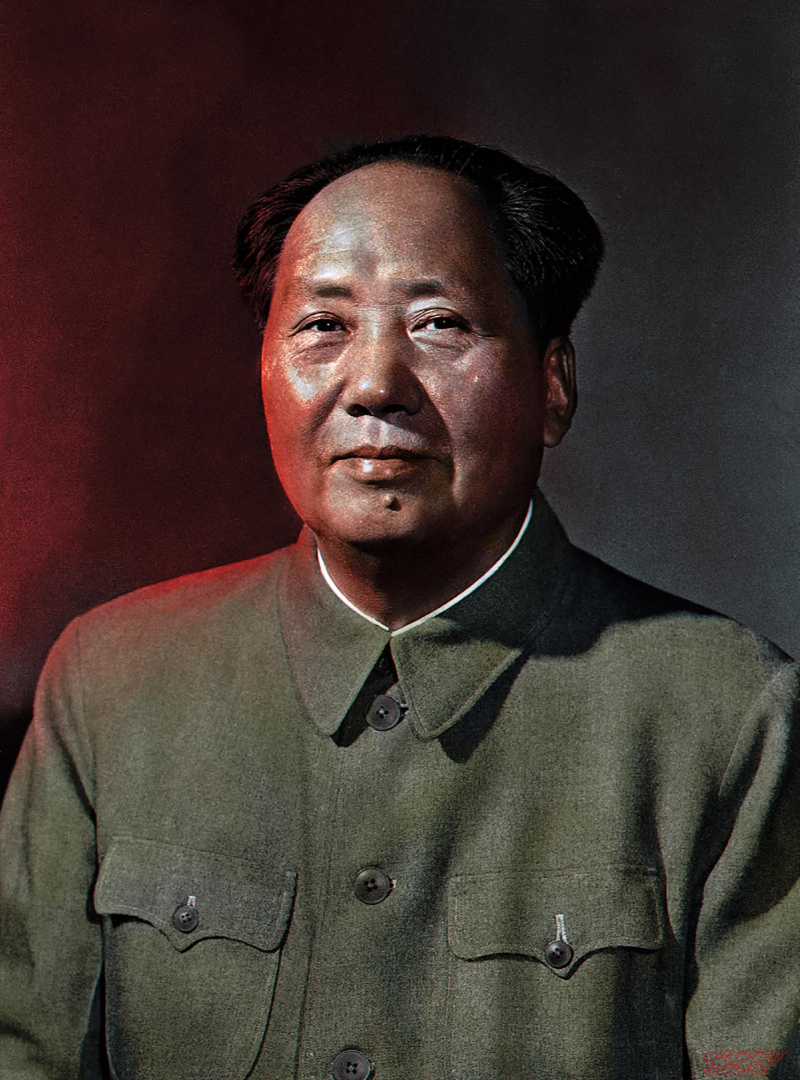
https://www.reddit.com 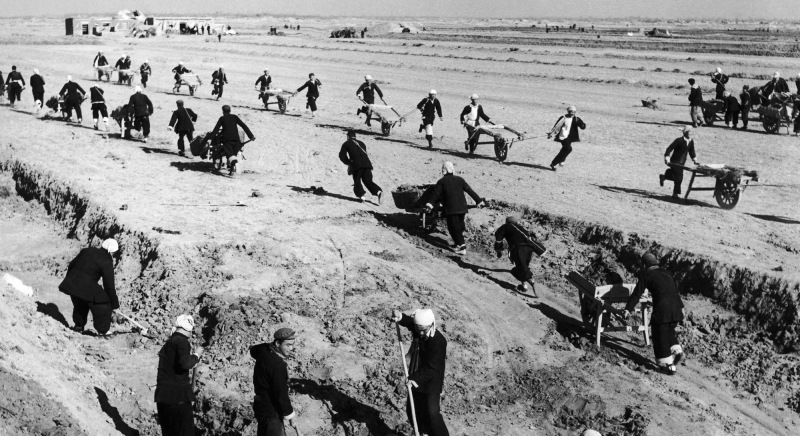
https://laurenream.github.io -
The onslaught on Omaha Beach on D-Day, which changed the course of World War II and led to an Allied Forces triumph, was successful for a variety of reasons. Deliberate deception undoubtedly had a significant effect, but one of the most crucial elements that contributed to the attack's success was the German forces' poor ability to predict the weather.
Of fact, the German army was aware that the Allies were preparing a significant offensive; they had even identified and fortified the most likely locations for the launch of such an onslaught. As a result, the D-Day assault had a very little window of opportunity and a very specific set of circumstances under which it might occur.
The Luftwaffe meteorologists' older technology and interpretation led them to believe that the conditions wouldn't be safe for the Allies until the middle of June, whereas American and British forces agreed that the bad weather, which would be disastrous to the ships and soldiers, would clear up in time.
German meteorologists made this error, which led to the Normandy coast being inadequately protected, Rommel not being where he needed to be at the right time, and the Allies turning the tide of the European theatre of World War II. The Germans might have been better prepared and D-Day would not have been as successful if they had access to the same information that the Allies did.
- Year: June 3, 1944
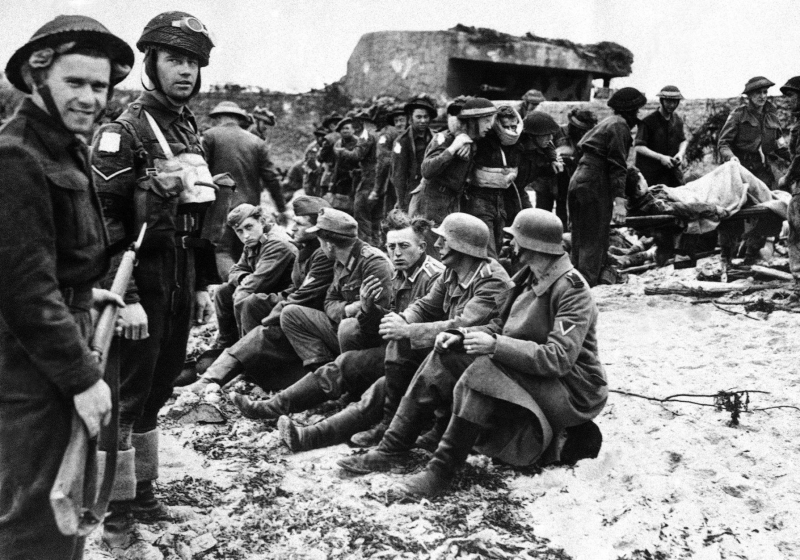
https://wtop.com 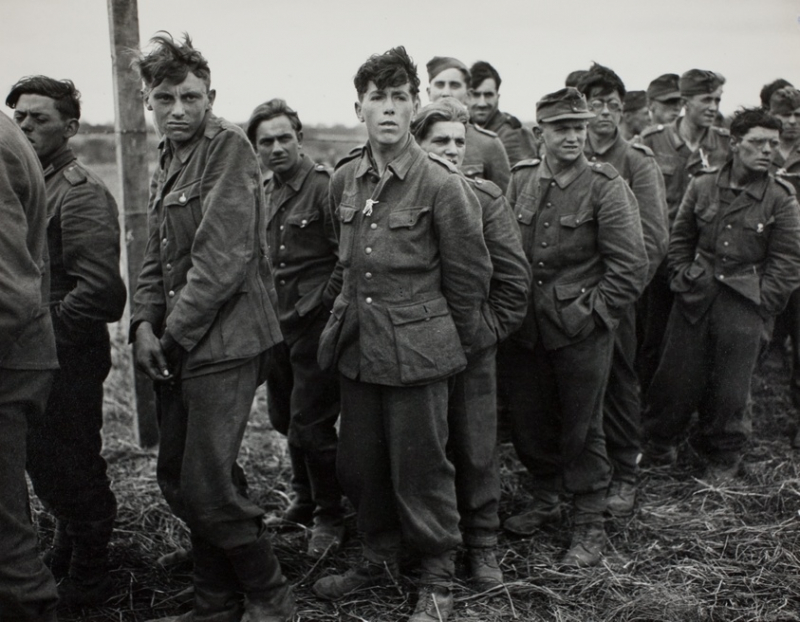
https://www.artic.edu -
The Ottoman Empire is notable for having achieved many of its successes seemingly by accident. The Battle of Karánsebes was another occasion where the opposing army—in this case, the Austrian army—made a vital error that made it possible for the Ottoman victory, even though it took place a long time after the surrender of Constantinople. The fight, which took place during the Austro-Turkish War of 1787–1791, resulted in a huge loss of life as well as humiliation for the Austrian army, which was at the time regarded as one of the most significant and valued armies. And if not for a miscalculation and a vital communication breakdown, it might not have happened.
The crisis started when the Austrian army's 100,000-man vanguard ventured ahead to scout the Ottoman army. After crossing the Timis River, the hussars came upon a group of Romani people who offered to sell them some schnapps instead of an Ottoman army. The calvarymen accepted and started drinking since they were thirsty and exhausted. After a while, some of the troops made their way across the river in search of the stranded vanguard. The infantry requested a portion of the alcohol when they noticed the hussars having a good time, and the inebriated officers started erecting improvised defenses around the barrels.
When someone in the infantry cried, "Turks! Turks!" in the middle of the melee, what had begun as a drunken altercation changed completely. Turkey! Turkey!" The many soldiers in the multilingual group fled quickly as a result, which led to the cavalry and infantry finally coming upon the Austrian army's camp. 10,000 people were killed as a result of the confusion that led the encampment army to believe they were under attack by Ottoman troops and that both sides were exchanging fire. Two days later, the Ottoman army that had just arrived found the dead soldiers and captured the surrounding village with ease. Things may have turned out quite differently if not for some careless partying and a drunken fight.
- Year: 1787–1791
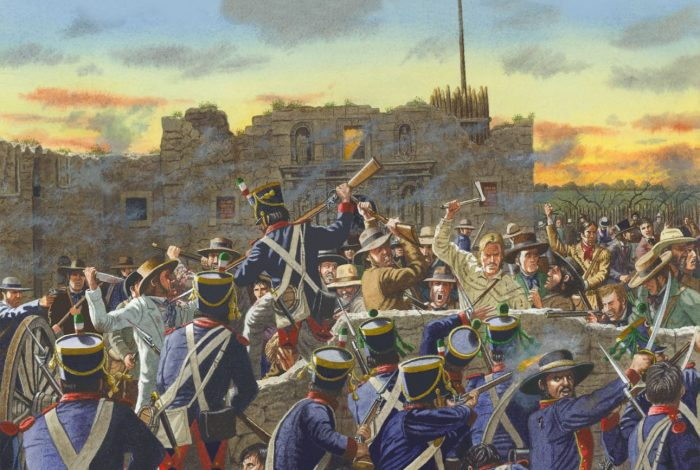
https://ozzz.org/ 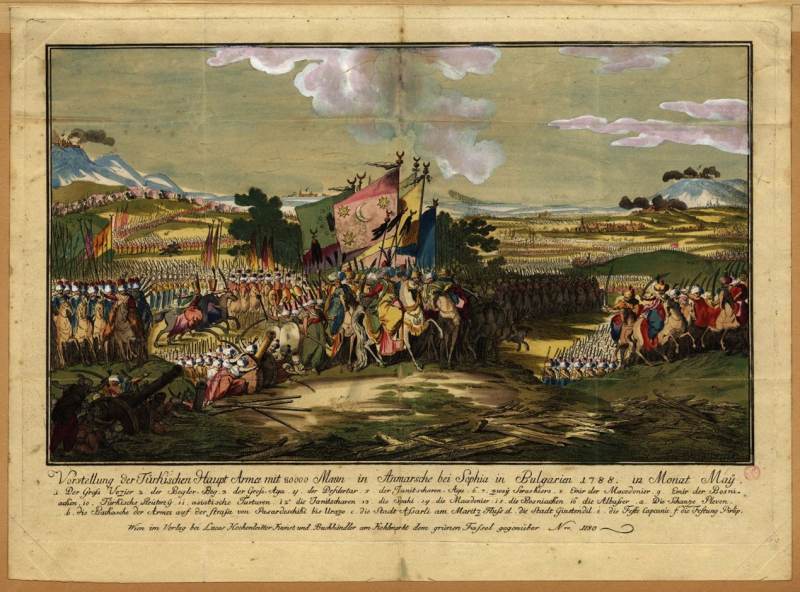
http://www.weirdthingsinprague.com -
As They Might Be Giants fans will attest, Istanbul was once known as Constantinople; nevertheless, it is currently known as Istanbul. However, the song does not provide an answer to the question of how Constantinople fell; rather, it is necessary to look at the history of the area, in particular, one crucial error made by those in charge of defending Constantinople during the siege that ultimately resulted in the Byzantine capital being captured by Ottoman forces.
The siege began on April 6, 1453, and lasted for 53 days. Since Constantine dedicated it, Constantinople had served as the imperial capital, and although being the target of numerous sieges, it had only been conquered once before—during the Fourth Crusade. Emperor Constantine XI Palaiologos had reason to be confident despite being greatly outnumbered by Sultan Mehmed II's armies because the city's walls had recently been repaired, the defenders were reasonably well-equipped, and it was widely believed that the Byzantine Empire could withstand the siege until assistance from the West arrived.
Despite being outnumbered, the Byzantine army held its own against Ottoman army skirmishes until just after midnight on May 29. The Genoese general in charge of the ground soldiers, Giovanni Giustianini, was severely hurt and had to be removed from the front lines during a significant fight that matched several Ottoman groups against various Byzantine strongholds.
Turkish troops were able to partially breach Constantinople's defences while rushing to get the general back into the safety of the city, raising Turkish flags in the process. Someone then neglected to lock one small, postern gate that went into the city as a result of a hurried retreat to try to defend the city's interior.Large numbers of Ottoman soldiers were able to enter the city through that one gate, and from that point on, Constantinople was doomed to collapse. There are simply too many other circumstances, thus historians cannot conclusively state that Constantinople would have continued to be a part of the Byzantine empire in the absence of the error. But because the gate was left unlocked, a tiny breach developed into a successful assault, which ultimately led to Constantinople becoming Istanbul.
- Year: 1453
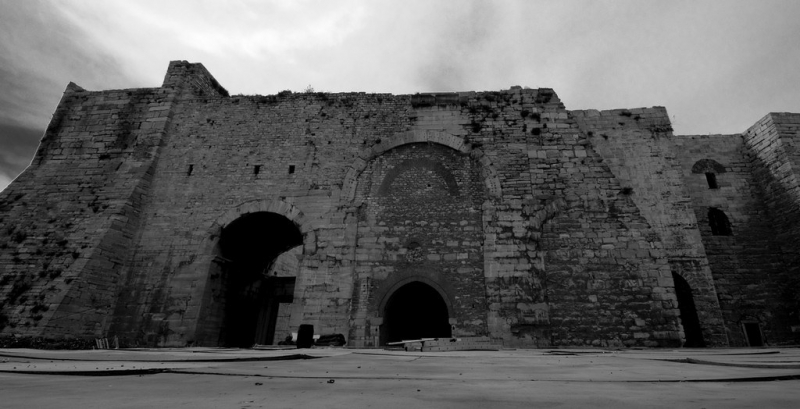
https://www.flickr.com 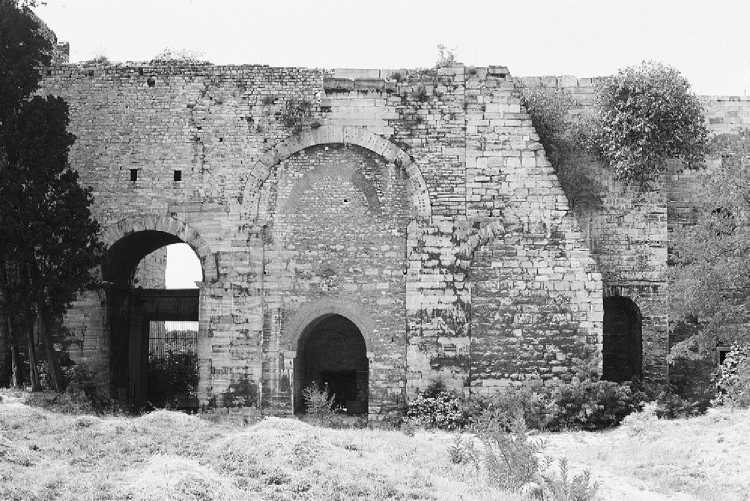
https://www.worldhistory.biz/ -
Even after the Deepwater Horizon oil spill surpassed it as the largest oil leak in US seas, the Exxon Valdez oil spill retains its position as one of the worst environmental catastrophes connected to the petroleum sector in history and is firmly in second place. According to the widely-accepted narrative, Captain John Hazelwood was mostly at fault for the event because he was intoxicated and distracted from the ship's operations. Nevertheless, Hazelwood was found not guilty after witnesses testified that he had been sober and awake during the incident. The real culprits were Exxon management's cost-cutting tactics and the decreased crew's fatigue brought on by long hours.
The radar equipment that the ship was meant to be using to aid navigate the waters was probably the single most important component. For ships at sea, radar systems are crucial because they enable crew members to avoid potential risks in the water by identifying them. In the Exxon Valdez case, the radar system had been malfunctioning for more than a year before to the oil spill, and worse than, Exxon was aware of it. Investigative journalist Greg Palast claims that the corporation considered the machinery to be "too expensive to maintain and operate."
The settlements imposed by the courts, which initially totaled $287 million in actual damages and $5 billion in punitive penalties, would have likely been less expensive. The compensation ordered by the courts, which initially totaled $287 million in actual damages and $5 billion in punitive penalties, though they have gradually been lowered as a result of appeals, were probably less expensive. However, if the corporation had maintained the radar and staff complement, it might have significantly reduced costs.
- Year: March 24, 1989

https://www.heraldnet.com/ 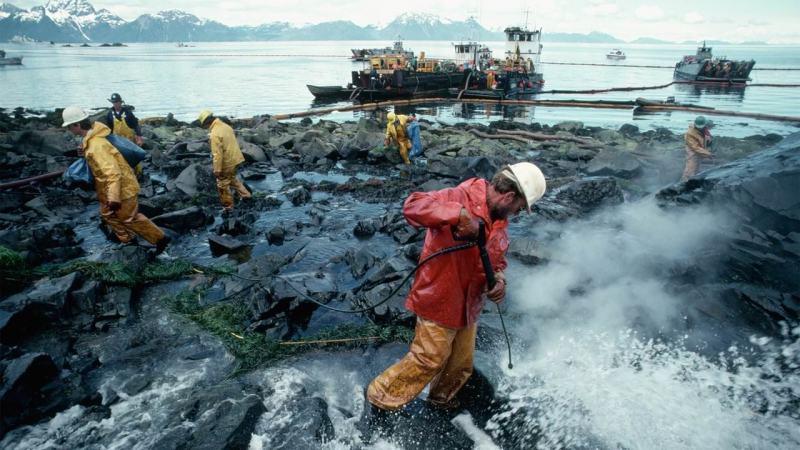
http://www.retroreport.org -
In many ways, World War I was an international conflict waiting to happen; a complicated web of covert treaties, alliances, and agreements between various nations, combined with a variety of distinct ethnic and national tensions, increased the likelihood that something would have sooner or later sparked the international conflict. In the end, the murder of Archduke Franz Ferdinand on June 28, 1914, served as the ignition source. But it might not have happened if not for a few crucial errors and miscalculations, as well as a language barrier.
Overall, the events leading up to the Austrian archduke's murder went horribly wrong; two of the conspirators did not act during the early stages of the archduke's schedule in the city, while a third had managed to toss his explosives but had hit the wrong automobile. Even Gavrilo Princip's initial attempt to kill Franz Ferdinand failed because he was unable to react in time. At that moment, the conspirators could have been excused for giving up.
However, the archduke decided after taking a short break that he wanted to go to the hospital to see how those hurt by the previous bomb were doing. The entourage got back into their vehicles, but as the drivers only spoke Czech and the arrangements for the new route had been established in German, they originally drove the old course. The automobiles stopped to turn back after it was apparent that there was a problem, with Franz Ferdinand's car stopping just in front of Gavrilo Princip. Almost miraculously, Princip murdered both the archduke and his wife with two shots to the automobile before escaping. The first world war may have unfolded very differently if not for a language barrier and a breakdown in communication.
- Year: June 28, 1914
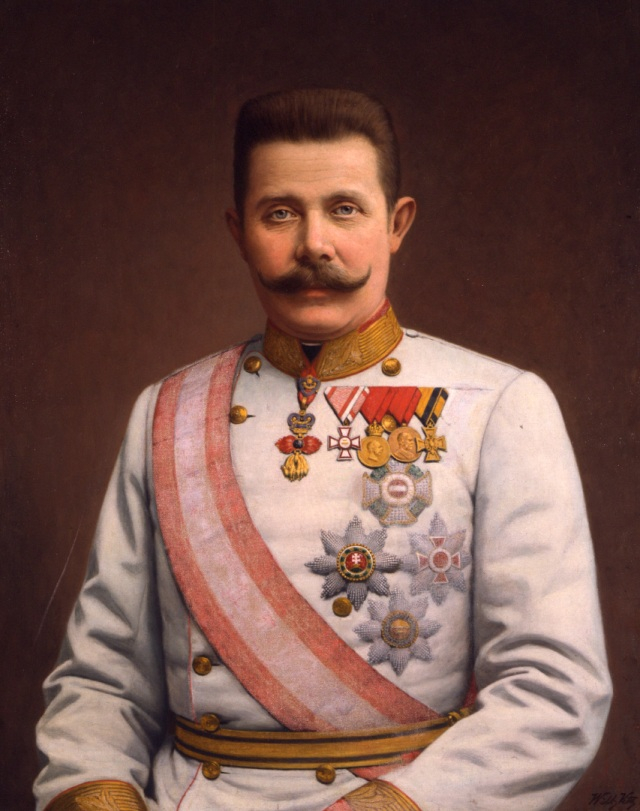
https://his-bio.blogspot.com/ 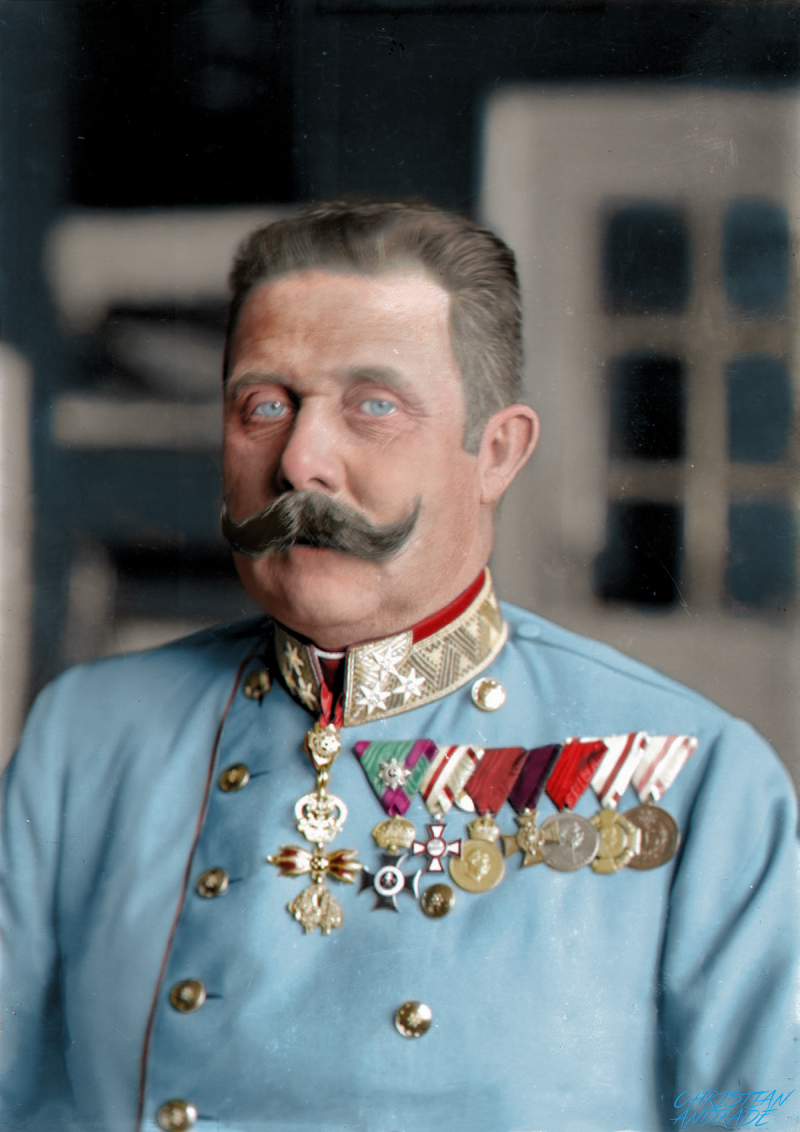
https://www.deviantart.com/ -
Like many other professions, archaeology was once dominated by amateurs and was not always the rigorous field it is today. Unfortunately, when discovering and digging their locations, such amateurs tended to be less cautious than their contemporary counterparts. The discovery of Troy by Heinrich Schliemann is what brings us full circle.
In his impassioned quest to establish the veracity of myths like those found in Homer's Iliad and Odyssey, Schliemann was primarily preoccupied with finding the city of Troy. The city has already been classified as a mythological locale by the time Schliemann was alive. The good news is that Schliemann almost definitely did discover the legendary Troy; the bad news is that Troy's artefacts were gravely harmed as a result of his excavation techniques. He did discover the proper spot, a place called Hisarlik in the Anatolia region, according to the majority of archaeologists.
In his initial investigations, Schliemann discovered that the site was not just one set of ruins but rather an underground layer cake of earlier towns, one on top of the other. Which was Troy, though? Schliemann employed explosives to assist take out the more modern structures and artefacts because he reasoned that Troy must be buried deep within the mound.Sadly, he was mistaken; investigations and analyses of the several levels of the excavation site revealed that Troy was really closer to the surface. The remnants and relics of the city had been severely damaged by Schliemann's efforts, which also destroyed a significant amount of priceless material. It's still a rich site, of course, but Schliemann would have learned a lot more about how closely the legends correspond to the actual location and what life was like back then if he had been a bit more patient.
- Year: N/A
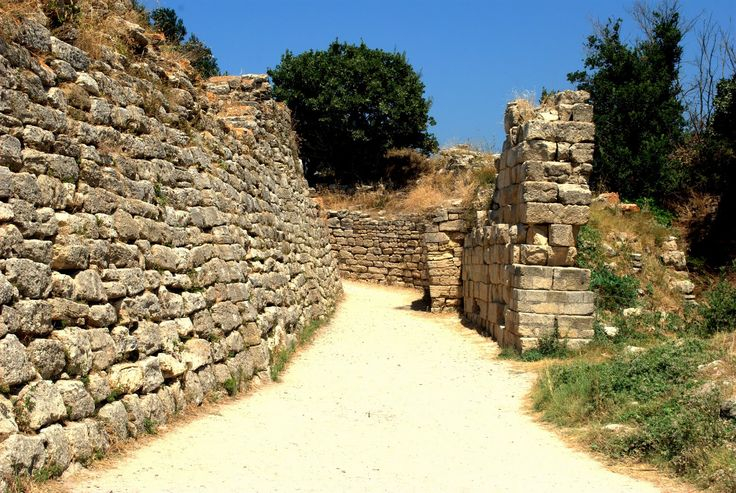
https://www.pinterest.com/ 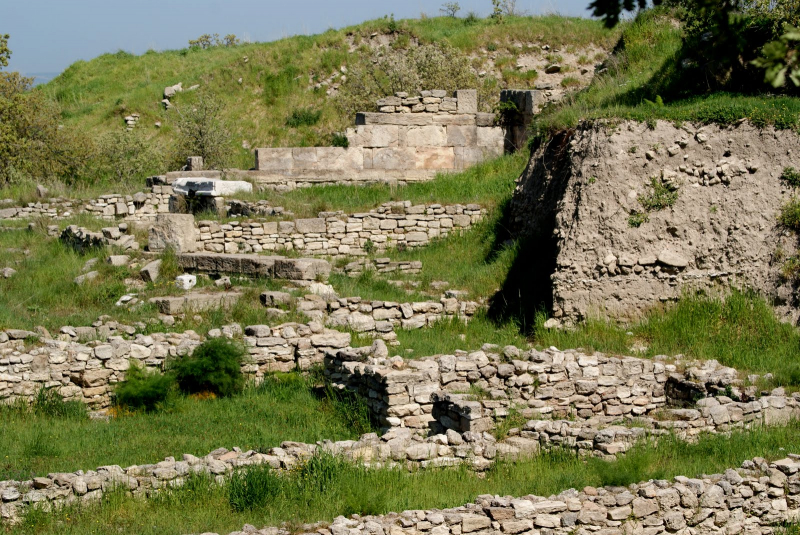
http://gallipoliyouthaward.blogspot.com - Year: N/A
-
A mistake can become extremely costly due to a number of circumstances, including: Although loss of life undoubtedly plays a part, mistakes can result in such significant opportunities lost that they qualify as tremendous. George Bell, the CEO of Excite, was faced with the choice of whether or not to purchase Google for a bargain and twice said no. Bell passed up the opportunity to purchase Google for $1 million in 1996, a decision that has since gained notoriety in internet history. He continued to say no even after receiving another offer of $750,000. For comparison, as of January of this year, Alphabet's (Google's parent company) net worth was within 1% of $1 trillion.
Naturally, the relative values of the two enterprises were very, very different at the time. Although Excite technically no longer exists, it was once valued at around $150 million. In hindsight, Google co-founders Larry Page and Sergey Brin had a great idea with their search engine concept, but Bell is adamant that nobody could have predicted how well it would succeed. There are various theories as to why, but the end result is always the same: Excite and George Bell missed out on a contract that would have brought in hundreds of billions of dollars.
- Year: 1996 for $1 million and another offer of $750,000

http://www.huffingtonpost.ca/ 
https://www.internethistorypodcast.com




















